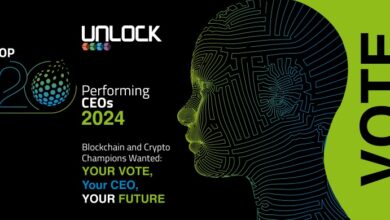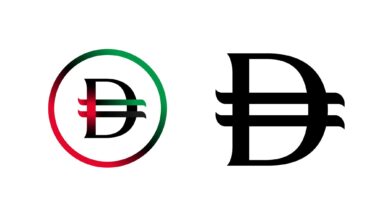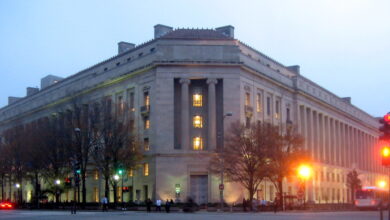Yat Siu on the Future of Digital Property Rights, Web3 Regulation, and Animoca Brands’ Global Expansion
Digital Assets, Like Physical Goods, Require Protection”: Yat Siu on Consumer Rights and Web3 Regulation
In an exclusive interview with Yat Siu, the co-founder and executive chairman of Animoca Brands, Unlock Blockchain explores the role of digital property rights in shaping the future of Web3. Siu, a well-known advocate of the decentralized internet, shared insights into the company’s expansion into key markets such as Saudi Arabia and the UAE, as well as Animoca’s broader mission to revolutionize the ownership of digital assets.
Unlocking Digital Property Rights: A New Paradigm
Yat Siu emphasized that digital property rights are pivotal to wealth creation in the coming decade. Drawing parallels to traditional property ownership, Siu explained that while the physical world thrives on property ownership as the foundation of capitalism, the digital economy has yet to offer similar opportunities for individuals.
“The power of network effects lies with monopolies like Google and Facebook,” Siu said. “They control data, and while users create the value, the platforms reap the rewards.”
Through Web3 technology, Animoca Brands seeks to decentralize this model, enabling users to own digital assets and benefit directly from the value they generate. Tokens represent ownership in network effects, allowing individuals to finally hold capital assets in the digital realm.
The Rise of Digital-Native Assets
While real-world asset tokenization has gained attention, Siu highlighted the future potential of digital-native assets, those that exist solely in the digital world.
“While tokenizing real-world assets like real estate or securities is important, I’m more excited about digital-native assets such as gaming items. These represent a new type of property that has immense potential,” said Siu.
He believes that industries like gaming, art, and music will benefit the most from this shift, creating new economic models in the digital landscape.
Regulatory Challenges and Consumer Protection in Web3
Yat Siu addressed a key issue in the Web3 space—regulatory challenges. He acknowledged that while progress has been made in regulating fungible tokens and financial assets, sectors like NFTs and gaming assets remain underregulated. Siu emphasized that regulation in Web3 needs to go beyond finance and encompass broader aspects of consumer protection.
“Regulation is ultimately about protecting the consumer,” he stated. Siu argued that just as consumers expect certain rights in traditional markets—such as refunds for faulty goods—the same principles should apply to digital assets. In his view, the Web3 ecosystem will thrive when clear, consistent consumer protection laws are in place, especially for non-financial assets like NFTs or in-game items. These areas, which are often overlooked by regulators, require frameworks that ensure users’ rights are safeguarded.
He pointed out that traditional financial regulation has made strides, particularly in regions like Dubai, Hong Kong, and Europe with MiCA (Markets in Crypto-Assets). However, the regulatory focus has been primarily on financial tokens. Meanwhile, other sectors of the Web3 ecosystem, such as decentralized applications and NFTs, have yet to see the same level of regulatory development. “Ninety-nine percent of the regulatory effort is focused on fungible tokens,” he explained.
Siu also discussed how regulation for gaming and NFTs will likely evolve differently from financial regulation. He expects them to be treated more like collectibles or consumer goods, subject to the kind of protections that apply to products in traditional markets. “If someone sells you a car that doesn’t work, you’re entitled to a refund,” Siu said, likening that to how faulty digital goods should be managed in Web3.
One of the biggest hurdles in Web3, according to Siu, is the issue of trust. He noted that the anonymous nature of many blockchain transactions creates an environment where it’s difficult to establish trust between parties. To address this, Animoca Brands is exploring solutions like Mocaverse ID, a reputation layer for Web3, which would allow users to build and maintain trust within decentralized ecosystems while preserving their privacy. “We’ve confused anonymity with a lack of accountability,” he said, emphasizing the importance of having systems that maintain privacy but also ensure that participants in the Web3 space are trustworthy.
Siu concluded by stating that while financial regulation has come a long way, there’s still a significant gap in the regulatory framework for non-financial digital assets. He believes that the next phase of regulatory focus should expand to include these areas to ensure consumer protection across the board, without stifling innovation.
Animoca’s IPO: A Path to Onboarding More Users into Web3
Siu confirmed that Animoca Brands is exploring a potential IPO in Hong Kong or the Middle East, with the aim of broadening public exposure to Web3 technologies.
“An IPO isn’t just about raising capital. It’s about onboarding more people into Web3,” Siu explained.
He believes this move could attract traditional investors who may not be comfortable with tokens but are open to investing in blockchain companies.
Saudi Arabia: A New Frontier for Web3
Siu described Saudi Arabia as a “new frontier” for Web3 development, perfectly aligned with Saudi Vision 2030. Through initiatives like NEOM, Animoca aims to build a Web3 Hub that integrates blockchain into the country’s infrastructure.
“Saudi Arabia, with its youthful, digitally native population, offers a fertile ground for blockchain-based innovations,” Siu remarked.
Addressing the VC Gap in the UAE
Siu acknowledged the lack of venture capital (VC) in the UAE as a significant challenge. “Dubai and Abu Dhabi have done a lot for Web3, but there’s still a shortage of VCs investing in seed-stage startups,” he noted.
He believes the rise of founder-driven VC investment will be key to developing the region’s tech ecosystem, as successful entrepreneurs begin reinvesting in technology.
In this interview, Yat Siu provided a vision for the future of digital property rights and Web3, highlighting the potential of digital-native assets, regulatory advancements, and Animoca Brands’ global expansion. As Web3 continues to grow, Siu’s vision of decentralization and digital ownership promises to reshape economies worldwide.





